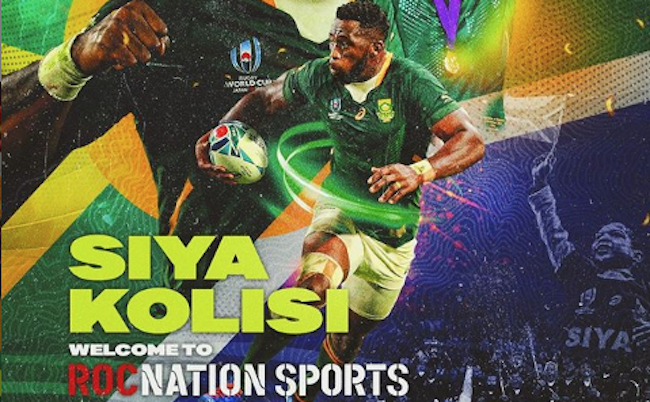Roc Nation Sports’ signing of Siya Kolisi and Cheslin Kolbe is indicative of the potential that exists, writes RYAN VREDE in the latest SA Rugby magazine.
READ: What’s in our latest issue?
In the past month or so I’ve shared my thoughts on the Black Lives Matter movement extensively in print and digital platforms. I’ve been asked what the movement argues for and have always given the same answer – equality opportunity.
Neither Siya Kolisi nor Cheslin Kolbe are blueprints for how that should look.
Kolisi, from Zwide, a village in the Eastern Cape, elevated himself through a single-minded focus despite his circumstances.
Yes, he attended a traditionally strong rugby school in Grey High, but his pathway there relied almost entirely on opportunities he engineered and his talent demanded, not as a result of having equal opportunities as a white kid from a privileged background.
For example, Kolisi was spotted playing in an U12 match for his local club by a primary school teacher from a suburban Eastern Cape school.
After the match, the teacher praised him and floated the idea of him attending his school. No commitment was made. However, Kolisi, determined to rise, showed up at the school, boots in hand, on the first day of the next term. The rest is history.
Kolbe did not attend any of the Cape’s big rugby schools, which are overwhelmingly how talented players get drafted into the Western Province rugby system. I can’t tell you the amount of black talent that populates the school and club system beyond the elite.
The bulk of those players never progresses beyond school or club first-team level for myriad reasons directly linked to unequal opportunity.
For every Cheslin Kolbe, there is a clutch of equally gifted players of whom WP Rugby scouts are simply unaware, because their focus is so narrow. Kolbe rose despite his circumstances. I’d make an educated guess that this is true across the country.
Yet as the playing field levelled out in the pro ranks, both players have shown themselves to be among the world’s elite players. It is sad that equal opportunities presented themselves only at such a late stage in their career.
One wonders how good they could have been earlier had they had access to the coaching, analysis, dietary guidance, conditioning and mental wellness resources most of their white peers had from their teens, maybe even earlier.
Be that as it may, they are a global success story, underlined by them signing for the world’s most disruptive and progressive sports management agency, Roc Nation Sports (RNS).
RNS is owned by iconic rapper Jay Z and has a client pool that includes some of the biggest names in their codes, including Kevin de Bruyne and Marcus Rashford in football, Kyrie Irving in basketball, CC Sabathia in baseball and Saquon Barkley and Todd Gurley in American Football.
Kolisi and Kolbe are the first and only rugby players in the stable. That speaks volumes because RNS are extremely selective about who they approach. Any potential client has to be accomplished in their field. More than that, the black players they recruit are reference points for black excellence.
It is a stated intention of RNS to provide the young, black athlete tangible examples of what they can achieve with work ethic, talent and temperament.
That two of those athletes are ours should be a point of great pride for them personally and for us as a nation.
Kolisi and Kolbe were a part of the most racially representative Bok team to win a World Cup. The bulk of the black players in that squad are from backgrounds defined by unequal opportunities in their formative years.
Their mentality and spirit overcame despite this, and in the process they should have made you wonder what would be possible if gifted, young black players are given the same opportunities to succeed as the majority of their white counterparts.
I’m excited about the possibilities that exist because Kolisi and Kolbe now have a truly global profile, and will be marketed as catalysts for cultural change in the world’s most influential market for culture – the US.
Herein lies the opportunity to tell South African success stories to a global audience. If we get it right, we all win.
And, in this context, that’s why these black lives matter.
*This column first appeared in the latest SA Rugby magazine, now on sale!





